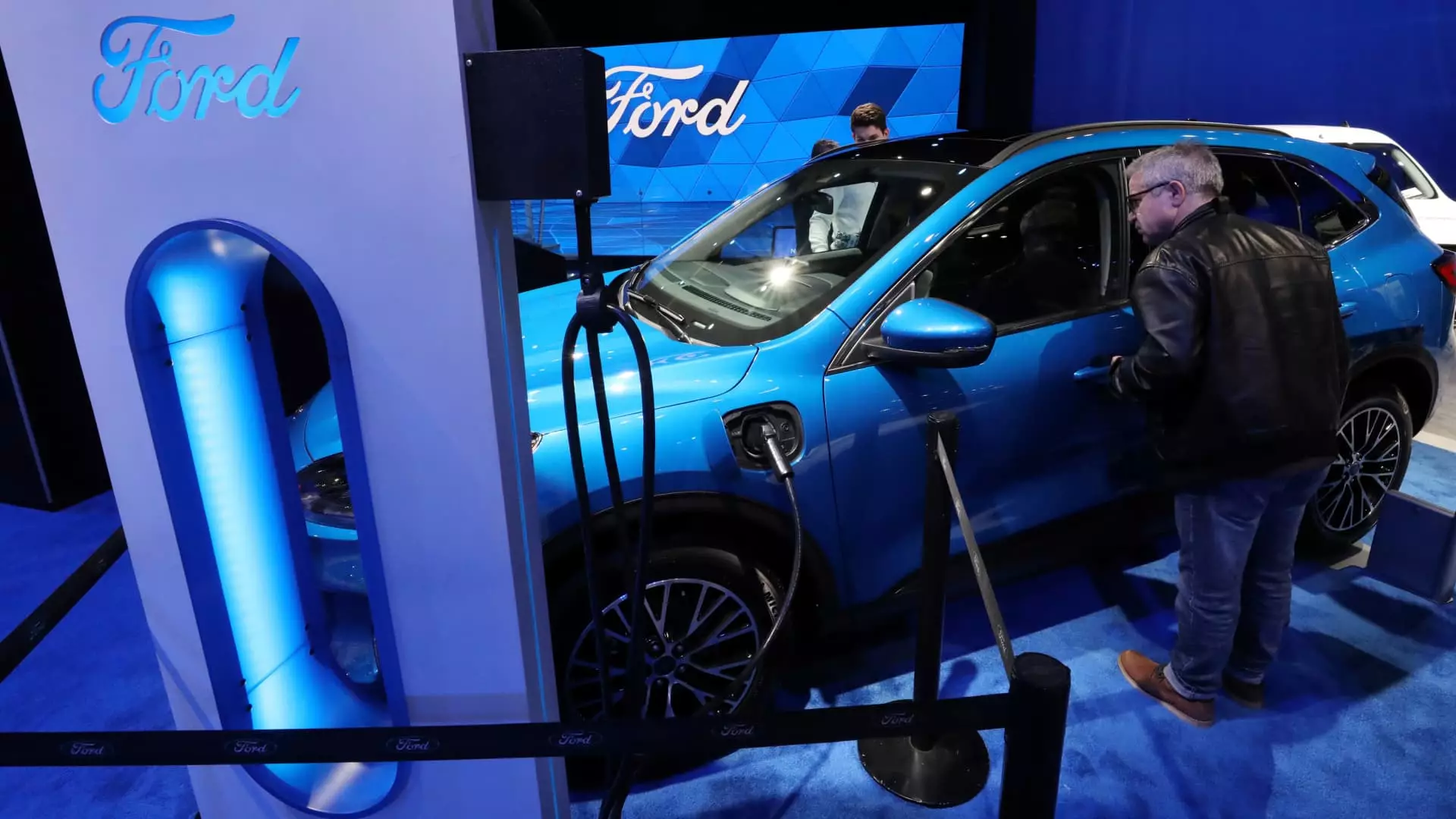Ford Motor Company is facing some setbacks in the production of its new all-electric large SUV and pickup truck. The company announced that it is postponing the production of these vehicles, shifting its focus to offering hybrid options across its entire North American lineup by 2030. The delay in the production of the three-row SUV in Canada to 2027 and the next-generation pickup to 2026 is a clear indication of the challenges Ford is facing in the electric vehicle market.
The decision to delay production comes as a result of slower adoption of electric vehicles than anticipated. This trend is not unique to Ford but is prevalent across the entire automotive industry. High production costs, market conditions, and profitability challenges have forced Ford to rethink its strategy and reallocate its resources accordingly. These challenges are a wake-up call for automakers to reassess their approach to EVs and find ways to make them more accessible to the broader market.
While Ford ranks second in EV sales behind Tesla in the first quarter of this year, the overall ranking of the company falls to third place when considering other brands like Hyundai with its subsidiaries. This position highlights the competitive landscape of the EV market and emphasizes the need for Ford to step up its game to remain competitive. The delay in production could potentially impact Ford’s market share and hinder its ability to compete effectively in the growing EV segment.
Despite the delays in production, Ford remains committed to investing in EVs and scaling a profitable EV business. The decision to focus on new plants like the “BlueOval City” campus in Tennessee rather than retooling existing facilities shows Ford’s dedication to innovation and leveraging emerging technologies. The company’s goal to provide customers with increased durability and better value through advancements in battery technology sets the stage for future growth and development in the EV market.
Ford’s financial report reveals that the company’s electric vehicle business, known as “Model e,” experienced significant losses in 2023 and projected further losses in 2024. The challenges in profitability underscore the complexities of transitioning to an all-electric model and the need for careful financial planning. Ford’s hybrid sales saw a significant increase, showcasing the demand for alternative fuel vehicles in the market. However, the company must find a balance between investing in EVs and maintaining profitability to sustain its long-term success.
Looking ahead, Ford’s decision to delay production of its all-electric vehicles signals a shift in strategy to adapt to changing market dynamics. The company’s continued investment in battery plants and new production facilities demonstrates its commitment to innovation and sustainability. As the automotive industry evolves, Ford faces the challenge of navigating the competitive landscape while meeting the demands of consumers for environmentally friendly vehicles. The future of Ford’s electric vehicles hinges on the company’s ability to overcome obstacles, capitalize on emerging technologies, and deliver value to its customers.

Leave a Reply